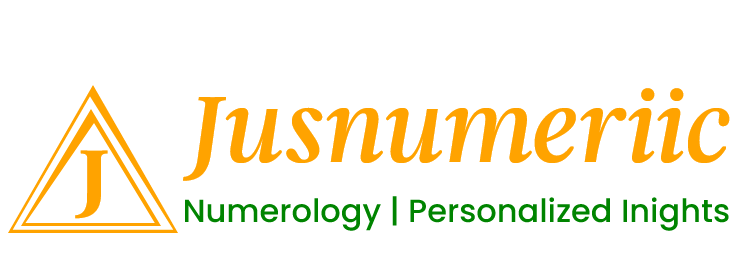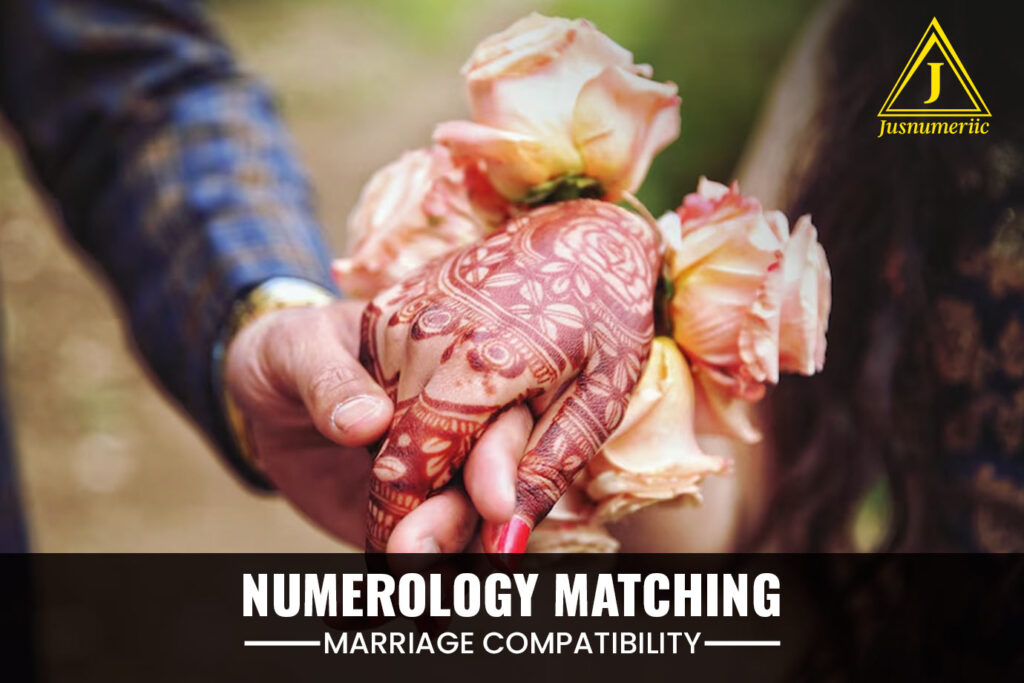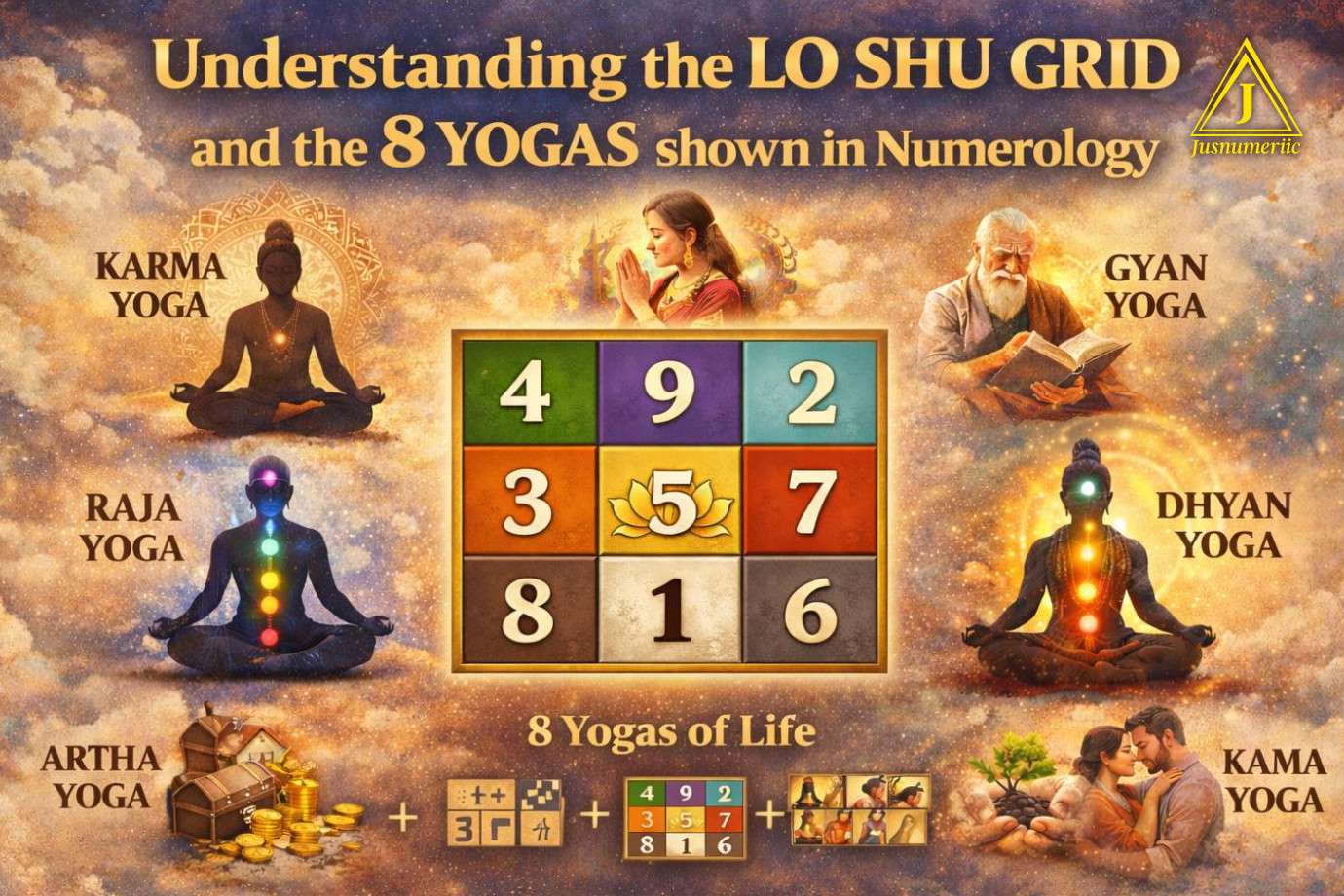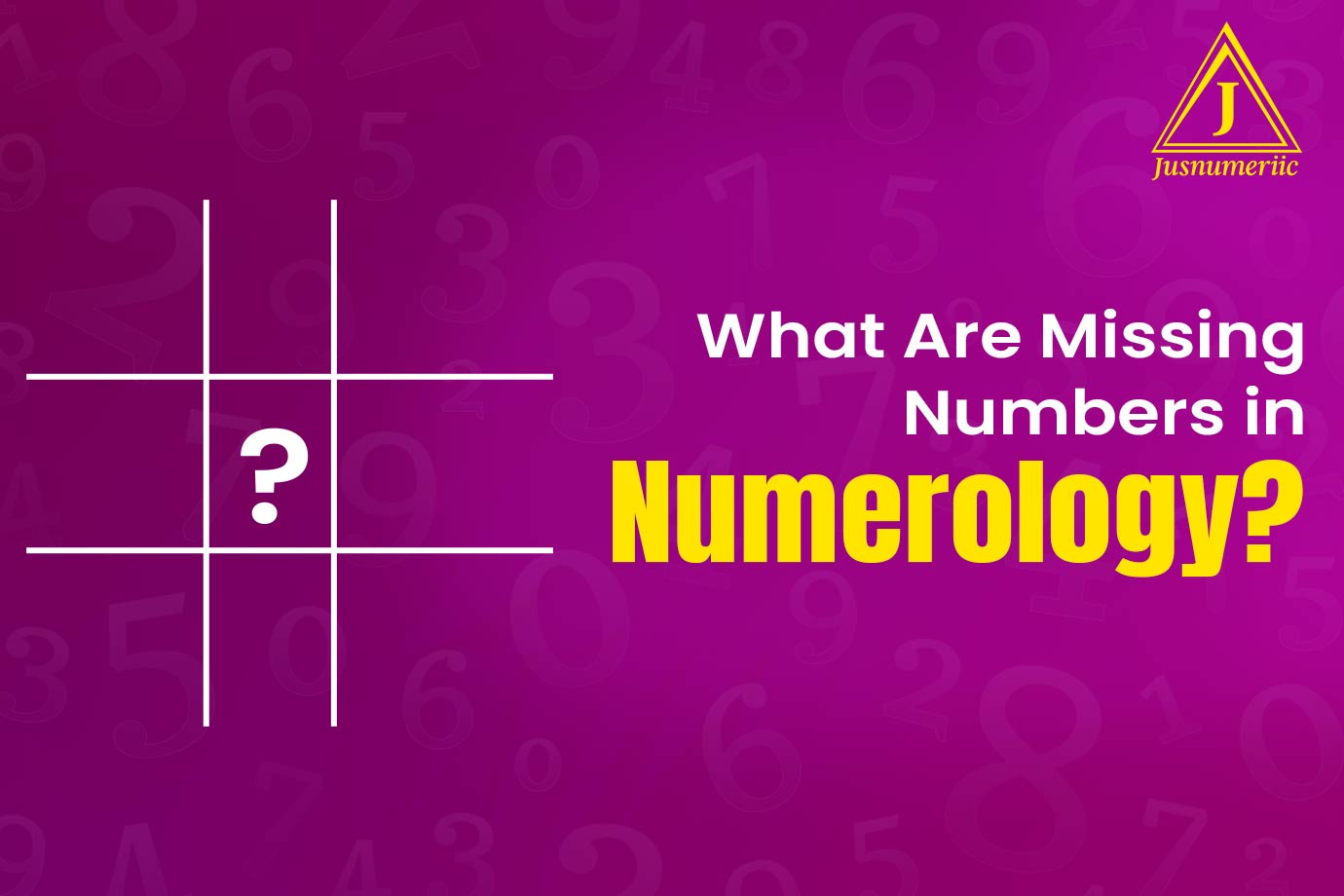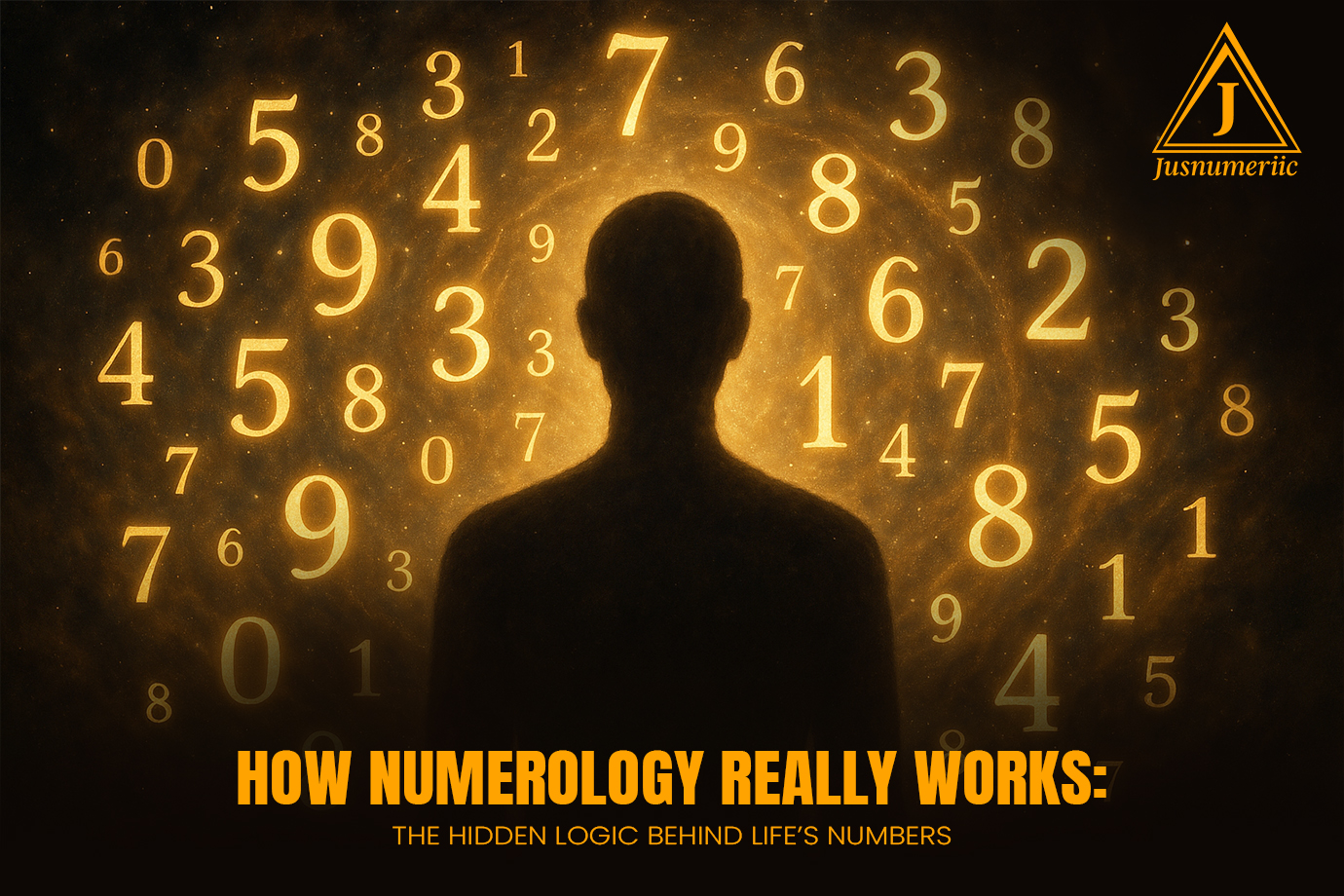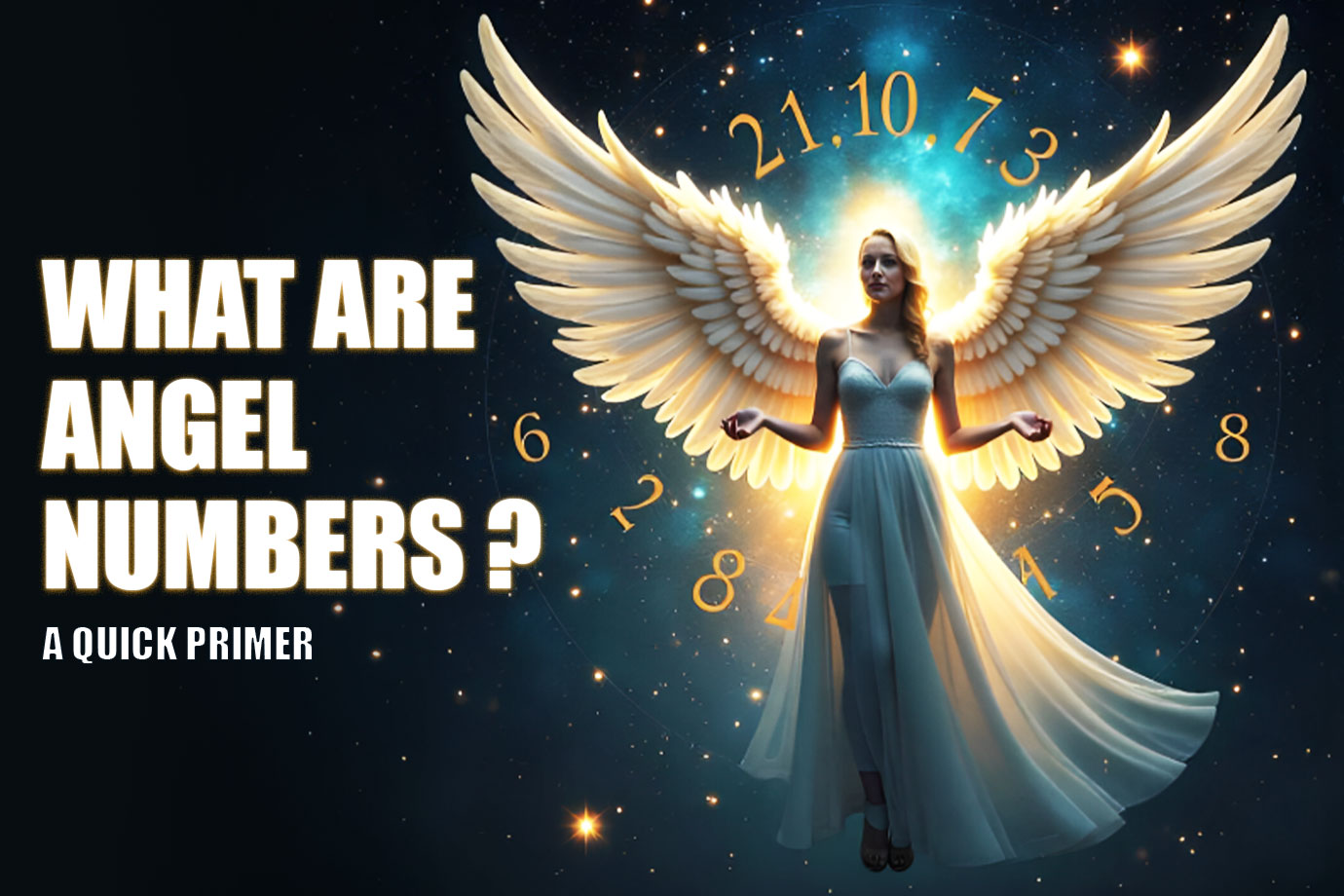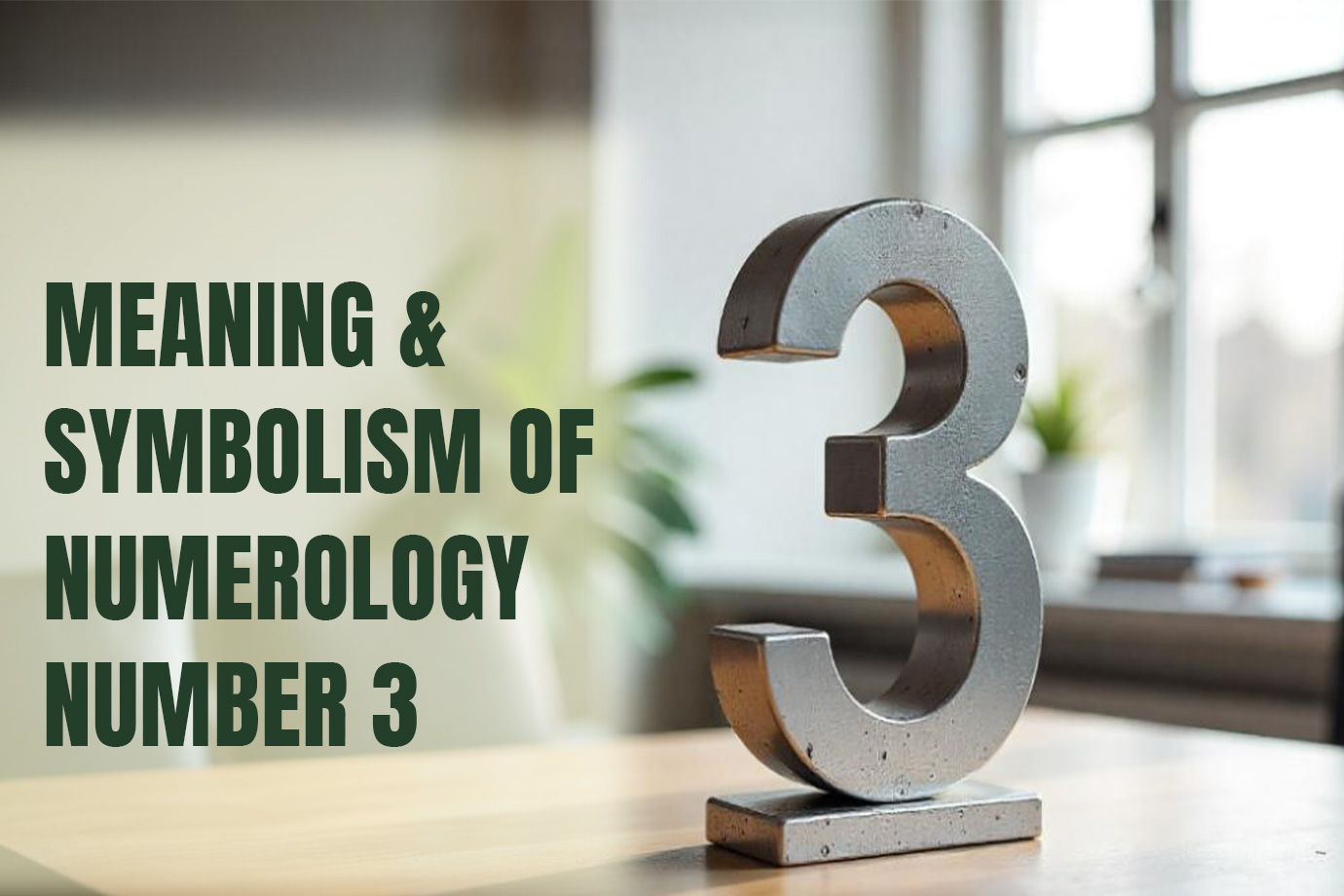Numerology matching is a way of checking compatibility between two people using numbers (from names and birthdates) rather than astrological charts. In India, many couples and families consult numerology alongside traditional kundali (horoscope) matching. Numerologists treat numbers 1–9 (and the master numbers 11,22,33) as having unique vibrations that influence personality and fate.
For example, one practitioner explains that “every matter in this cosmos reverberates at a specific vibration” and that numbers 1–9 “form an incredibly strong association with the nine planets and cast an enormous effect on us,” much like a horoscope. In practice, numerology matching involves computing core numbers for each partner and seeing how they align.
Core Numerology Numbers
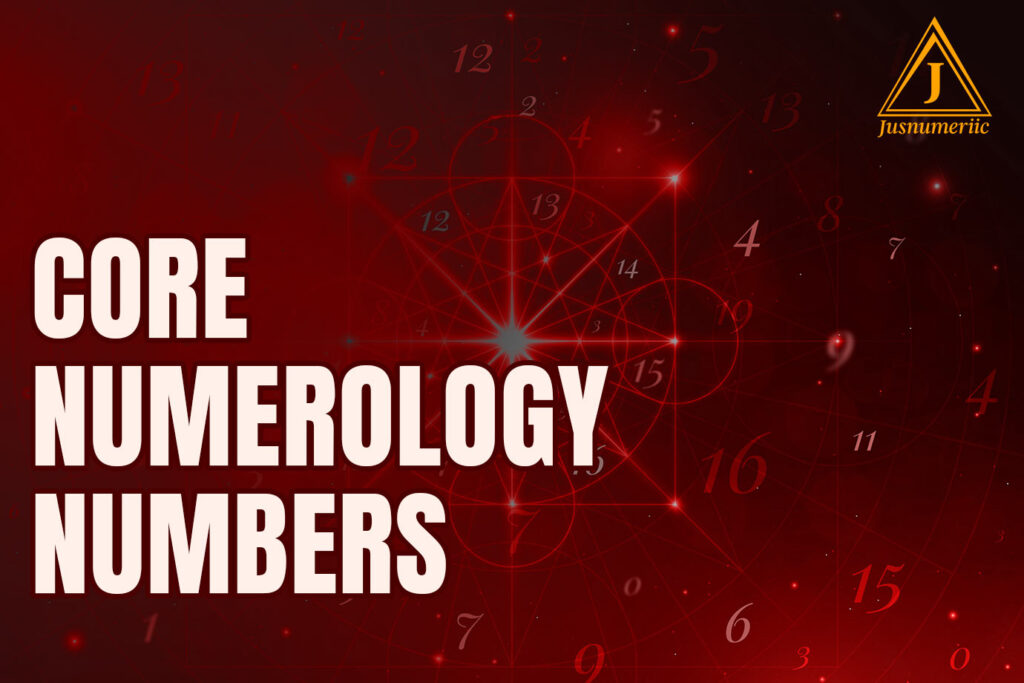
Numerology derives several core numbers from your birth date and name, each meant to highlight different aspects of your character:
- Life Path (Destiny) Number – calculated from the full date of birth. It is said to be “like a tiny peek into your very essence, spotlighting your innate strengths and weaknesses”. For marriage matching, Life Path is crucial: if both partners’ Life Path numbers are harmonious, the relationship “will run smoothly,” but if they clash, the couple may need to reconcile different goals and priorities. (Technically it is obtained by adding the digits of the birth date until a single digit or master number results.)
- Expression (Destiny) Number – derived from the full birth name. This number “shines a light on your talents, abilities, and potential,” guiding how you express yourself in life. In compatibility, matching Expression numbers suggests shared direction: two partners with similar Expression numbers tend to “find a common direction in life,” whereas very different Expression numbers may require patience to blend talents.
- Soul Urge (Heart’s Desire) Number – calculated from the vowels in the birth name. It represents inner motivations and yearnings. Times of India describes the Soul Urge number as “like a compass, pointing you towards your true purpose in life”. When comparing couples, matching Soul Urge numbers is said to help partners understand each other’s deep needs: if they “are in harmony, it will be easier for them to understand each other’s soul needs,” but if they differ, the couple must work harder to fulfill each other’s desires.
Other numbers exist (Personality number, Birthday number, etc.), but Life Path, Expression and Soul Urge are the main ones used in marriage numerology. Importantly, these numbers come from names and dates, so one often hears of “numerology matching by name” (comparing name numbers) and “numerology marriage matching by date of birth” (comparing Life Path/destiny numbers) as separate checks.
Numerology Matching in the Indian Marriage Context
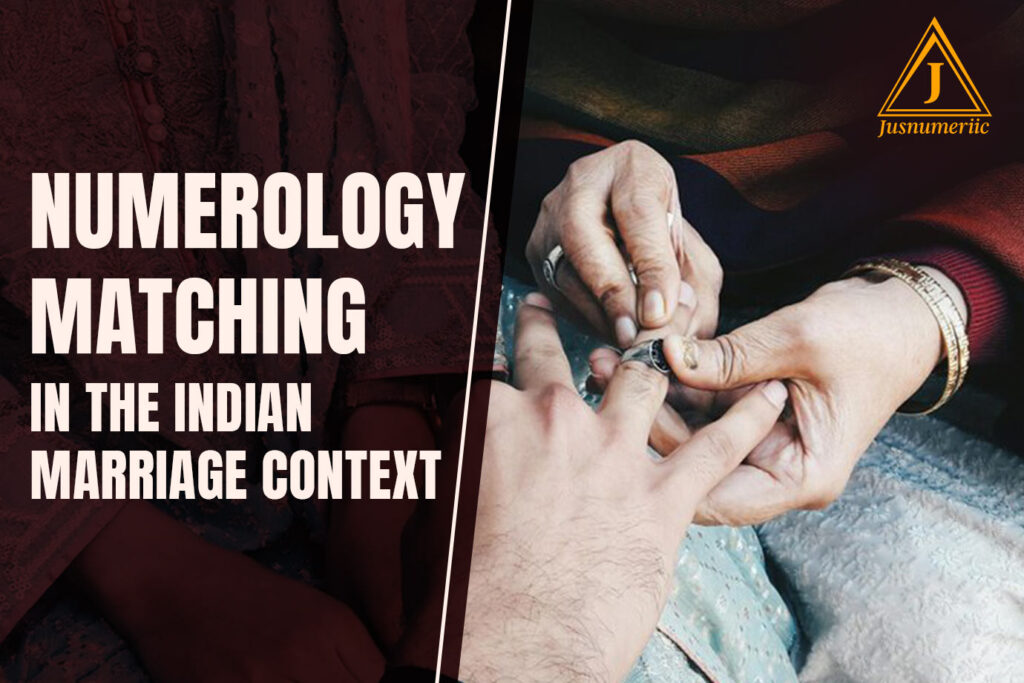
In the Indian context, numerology is often used as a supplement or alternative to horoscope (kundali) matching. For example, one site notes that numerology “complements astrology when finding the suited person” for marriage. Numerology does not rely on exact birth time or planetary positions, so it can be applied even when a precise kundali is unavailable.
A Times of India article on “Marriage Matching by Date of Birth” points out that your birthdate alone contains information about character and compatibility. It advises calculating each person’s “destiny number” (life path) from their date of birth and comparing these. In that view, “best marriages happen by bringing together compatible destiny numbers” while mismatched numbers can lead to problems.
Another writer similarly emphasizes that numerology treats the date of birth and the numeric value of the name as having a “profound effect” on one’s life, and that combining these in a marriage can suggest a compatible match. In practice, a numerology marriage consultation might first compute each partner’s Life Path, Expression, and Soul Urge numbers from their date of birth and names, then compare them side by side. For example, some experts say the “Heart’s Desire” (Soul Urge) numbers should match for harmony – “if the two numbers are similar there would be sure to be harmony, sympathy and understanding” in the relationship.
They then check the Life Paths: if partners’ life missions run in parallel rather than conflict, that’s promising; if not, the couple needs to support each other’s growth. Many numerologists also look at other cycles (Personal Year, Pinnacles, etc.) or even adjusted names (minor numerology), but the core idea is to see how the couple’s numbers “correspond” or clash.
Numbers and Compatibility
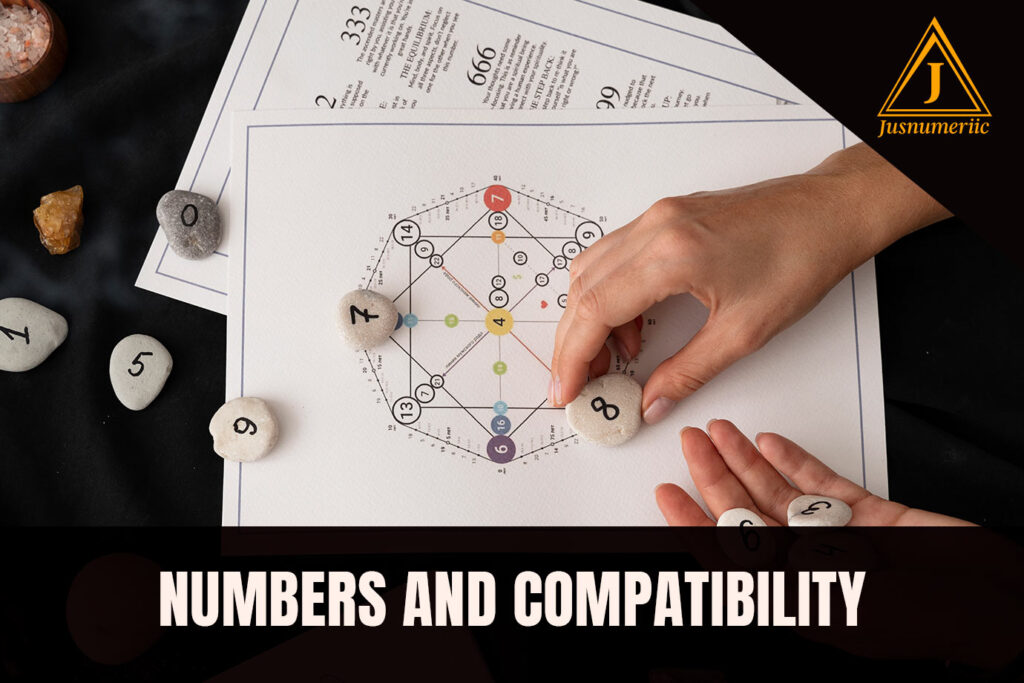
Numerologists often publish charts or lists of which digits pair well. Because each number 1–9 has characteristic traits, compatibility is usually expressed as “good” or “bad” pairings. For example, one mainstream list in the Times of India (2016) describes general compatibility of single digits. It says Number 1 is the “number of control and willpower,” having a “perfect alliance” with 1,3,4,5,7,9 and being antagonistic toward 2,6,8. Number 6 is described as loyal and beauty-loving, most compatible with 2,3,6,9 and least with 1,4,5,7,8. Number 7 (intellectual, philosophical) fits with 1,3,4,5,7,8,9 but clashes with 2,6.
Another perspective is given by compatibility charts based on Destiny (Life Path) numbers. For instance, one Times of India chart lists each Destiny Number and its best/worst matches. It shows Destiny Number 1 is best matched with 4 and 8 (and lists 2,3,5,6 as average, 7,9 as poor). Number 5 in that chart is best with 9 and 3 (average with 1,5,6,8; bad with 2,4,7). Such charts are often used to decide if two people’s numbers “go well” or not.Importantly, sources differ on the details.
One modern numerologist’s cheat-sheet (Sheelaa Bajaj) says: Life Path 1 is best with 2,4,6 (worst 7,8,9) and 2 is best with 1,3,6 (worst 5,8). By contrast, the earlier Times list above had given a different set of friendships for 1 (with 3,4,5,7,9). In fact, many writers note that numbers 2, 6 and 9 are especially auspicious for marriage – one Q&A flatly calls 2,6,9 “the best numbers…as they emphasize relationships, love, and harmony” – while 1 and 5 often appear as challenging or less compatible.
(Another source even suggests the number 4 brings stability and 6 brings “home and family,” so months 4 and 6 are good for weddings.) The takeaway is that numerology matching numbers are not absolute rules; they vary by tradition. They should be seen as general pointers (e.g. “1 and 2 usually get along” or “5 struggles with 8”) rather than destiny’s decree.
Numerology vs. Kundali Matching
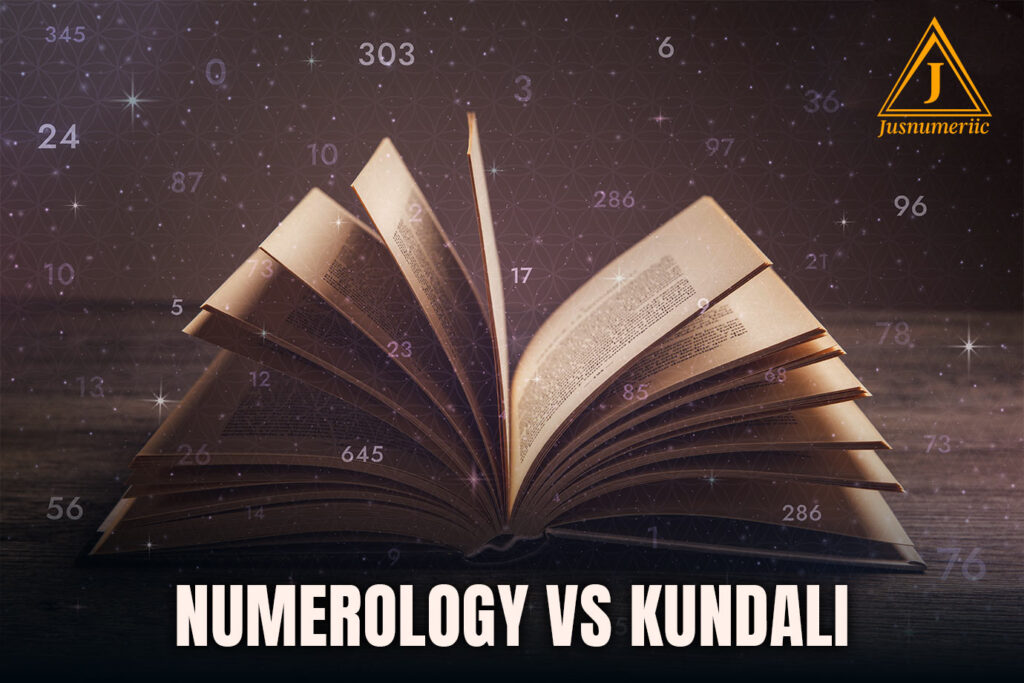
It’s important to distinguish numerology from traditional horoscope (kundali) matching. In Hindu custom, kundali matching (gun milan) examines the bride’s and groom’s star charts on many factors. It uses the Ashtakoota (36-point) system to score compatibility. Numerology, by contrast, does not look at planets or star signs at all. A Times of India analysis explains: “Astrology studies the positions of celestial bodies at the time of birth… Numerology focuses on the vibrations and energies of numbers derived from birthdates and names.”.
Culturally, astrology features a more mainstream presence (people commonly discuss zodiac signs and planets in India) whereas numerology represents a more niche “indie film” of the spiritual world. Both aim to shed light on relationships, but via different symbolism.Because they are so different, terms like “numerology kundali matching” can be misleading.
A proper numerology match never uses a kundali chart; similarly, real kundali matching never relies on name letters. Instead, think of them as parallel systems. As one numerologist puts it, numerology is an “occult science” that can identify compatibility “apart from traditional… Kundli matching”. In short, Indian couples might do horoscope matching and numerology matching side by side: the former checks star influences, the latter checks name/date number influences. Neither guarantees success, but both offer insights.
Advantages and Limitations of Numerology
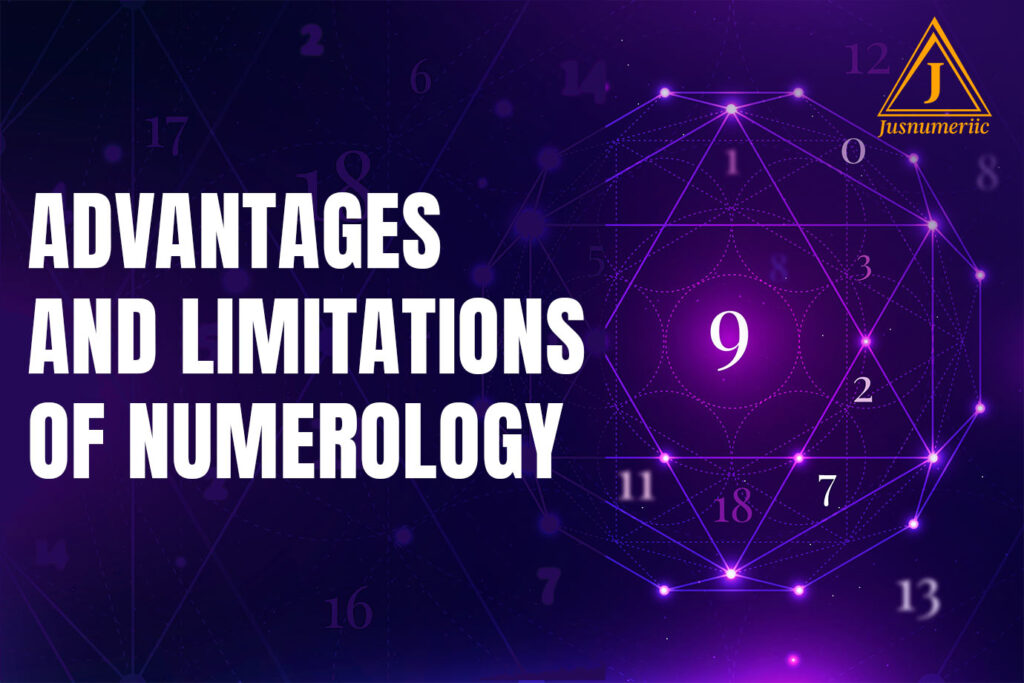
Advantages:
Numerology is simple and accessible. It requires only names and birthdates, not exact birth times or chart casting. Many people find comfort in its concreteness: as one writer notes, “a birth date will always total the same, no matter who adds it. That certainty brings comfort in an emotional process.”. Numerology can give couples a fresh perspective on their relationship. For example, a recent Times of India article says birthdate numerology “reveals personality traits, emotional compatibility, and potential relationship dynamics,” offering “a unique perspective for making informed decisions about long-term relationships”. In practice, couples use numerology to optimize their union – choosing auspicious dates, understanding each other’s tendencies, or even picking lucky wedding dates and colors. One numerology guide suggests choosing wedding dates whose digits add to 2, 6, or 9 (considered lucky for love).
Another advises exchanging gifts aligned to each other’s numbers or using affirmations tied to personal numbers. In this sense, numerology can complement a couple’s planning, providing fun ideas (like using luck-bringing colors) and giving a sense of shared “soul codes.” As one expert puts it, a compatibility chart doesn’t predict fate, it “helps you make the right decisions” about it.
Limitations:
At the same time, numerology is not scientifically proven. Critics point out that it’s essentially a belief system without empirical evidence. As one analyst bluntly notes, “there is no scientific evidence to support the claims of numerology”. And no solid theory for why it should work. Different numerologists may even use different methods or interpretations (Pythagorean vs Chaldean, etc.). So people can get conflicting readings for the same data. In short, numerology lacks testable validity, so any insight it offers is anecdotal.
Couples should therefore not treat a few number clashes as fate. A compatibilty mismatch in numerology can highlight potential issues to discuss, but it should never be the sole basis for accepting or rejecting a match. As one tip sheet wisely advises, if you discover a traditionally “clashing” number pair, “don’t panic — be aware and open discussions. These numbers won’t doom you, but they’re signposts for where extra patience or communication might help.”.
Tips and Best Practices for Couples
Calculate and share your numbers
Sit down together and compute each other’s core numerology figures: Life Path, Soul Urge, etc. (E.g. add up your full birth date to get the Life Path, and vowels/consonants of your name for Soul Urge/Expression.) Discuss what these numbers mean about your personalities. Experts say this can be fun and enlightening. For instance, if you both end up with Life Path 5 (adventurous), you might recognize shared values. Or if one is a 2 (nurturing) and the other a 7 (spiritual), you might see how those traits could complement each other.
Use a compatibility chart or calculator
Compare your numbers systematically. Many online tools will do this. For example, note that people often list Life Path 1 as compatible with 2, 4, 6, while 2 goes well with 1, 3, 6. You can use such cheat-sheets to see where you align. If you find a “weak” pairing (e.g., one partner’s number clashes with the other’s), view it as a signal to pay extra attention, not a disaster. Numerologists emphasize these clashes as areas to improve. “They’re signposts for where extra patience or communication might help,” not something to fear.
Pick auspicious dates and details
Many couples apply numerology to wedding planning. Days that sum to 2, 6 or 9 are traditionally lucky for marriage. Choose a date that aligns with both partners’ numbers. Other ideas: wear your “lucky color” or exchange gifts matching your personal numbers to strengthen your bond. These practices are intended to set positive intentions rather than guarantee outcomes.
Keep perspective
Remember that numerology is a guide, not an oracle. A numerology report “doesn’t predict your future – it helps you make the right decisions for it.”. Use numerology as a conversation starter about values and styles. In fact, because numbers always add up the same (a birthday is fixed). They can make the relationship feel more concrete and understandable.
Discussing your numbers might help you foresee issues and appreciate each other’s strengths. But always balance number-based advice with real-world understanding: personal compatibility ultimately comes from communication, respect, and shared values.
Conclusion
Numerology matching offers an alternative lens on marriage compatibility. It suggests that names and birthdates have vibrational meanings, allowing comparison of numeric profiles to assess a couple’s harmony. In India, this culturally resonates and offers a quick check when horoscope data is missing or as a fun supplement. It highlights complementary traits and potential friction points – but it should be used wisely.
Couples should take numerology results in stride: it can guide and enlighten, but it cannot replace personal choice and effort. As one writer advises, treat your numerology couple match as a helpful tool, not a binding fate. Numerology can be a fun way to reflect on your partnership and choose dates. But solid communication is essential for a happy marriage.
